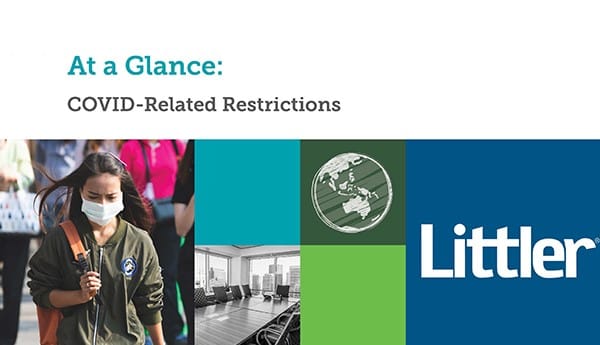 MEDIA COVERAGE
MEDIA COVERAGEBy Lisa Rix - 29 May 2020
At the moment, it remains the case that employees should only return to the workplace if they cannot work from home.
However, as businesses begin to plan for employees’ eventual return to work, there are many questions which arise as to what risks exist and how to mitigate them. The most popular question seems to be: if an employer has made their workplace “Covid-19 secure”, can employees still refuse to return to the workplace? And if they do refuse, can employers discipline such employees, stop paying them, or even dismiss them?
Employers should always try to resolve a refusal to attend the workplace informally first, but it’s also worth being aware of the risks to navigate if you do have to take more formal action such as withholding pay, disciplining or dismissing the employee.
From a legal perspective, employees may have the following claims:
- Health and safety detriment/unfair dismissal – if an employee can show that they reasonably believe that they are in serious and imminent danger of contracting Covid-19 either in the workplace or on their journey into work, and have been dismissed (constructively or not) or subjected to a detriment as a result of refusing to attend the workplace.
- Negligence - if an employee can show that the employer did not provide safe systems of working and the employee is injured or caused loss as a result (without needing the additional steps of discipline/suspension of pay/dismissal).
- Whistleblowing detriment/unfair dismissal – if an employee can show that they have been subjected to detriment or dismissed (constructively or not) by reason of making a protected disclosure (such as an employer failing to provide a safe system of work or the health and safety of any individual being endangered).
- Breach of contract claims (and unlawful deductions from wages claims) possibly leading to claims of constructive dismissal – if an employee can show that their employer has breached the implied term to take reasonable care of the health and safety of employees or that an instruction to return to the workplace is not “reasonable” (and therefore breaches the implied duty of mutual trust and confidence).
- Discrimination – employees who fall into clinically vulnerable categories or live with those who do may be able to bring disability or associative disability discrimination claims respectively. Sex discrimination risks may arise for employees with childcare responsibilities (while schools and nurseries remain partly closed) and pregnant employees (who may also bring pregnancy discrimination claims).
What is key in dealing with employees who don’t wish to return to the workplace is to understand their individual concerns and see if you can work around them (such as with flexible start/end times for those nervous about commuting into work again); a one size fits all approach is unlikely to work.
Stay tuned for our more detailed factsheet on dealing with challenging categories of employees.
If you would like to be the first to receive our Return to Work materials email [email protected] to be added to our mailing list.










